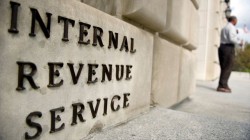6 Questions American Expats Should Ask Before They Invest
Posted on April 18, 2013 It’s not easy being an American expatriate, watching your other foreign friends invest tax free offshore. Should I join them? You wonder. Living overseas is more complicated than with any other nationality due to complex IRS rules and regulations. It is therefore important that you find an advisor that fully understands these complexities and understand your situation.
It’s not easy being an American expatriate, watching your other foreign friends invest tax free offshore. Should I join them? You wonder. Living overseas is more complicated than with any other nationality due to complex IRS rules and regulations. It is therefore important that you find an advisor that fully understands these complexities and understand your situation.
If you are looking for an advisor in China I recommend that you get answers to the following points before you commit your hard earned savings:
1. How does the advisor or firm make their money?
If they are offering you an insurance based product, by such companies as Generali, Royal London or Zurich International they are commission based advisors. Meaning, when you initiate the investment they receive a large upfront commission. I realize everyone needs to get paid for their service, but at the same time you would hope that the interest of your advisor is in line with that of yours.
While studying organizational behavior in business school one basic concept we learned in achieving appropriate motivation is to align the interest of your staff with that of the company. This is why companies offer stock options, company shares and performance related bonuses, if the company does well so does the employees.
So when looking for a financial advisor make sure their interests are financially tied to yours. Look for a fee-based advisor that is rewarded when you make money. A fee-based advisor will typically charge a management fee of 1-1.5% per annum on assets under management and will make more money as your account grows.
2. What are your total costs? Are they easy to understand?
The cost to invest is an important determinant as to whether you will make money or not. Many products in obscure islands have annual running costs of 4-5% and maybe more if the advisor is charging you a management fee.
With an average annual return of a mix-asset portfolio of 8.5%, this means you are giving them half your profit with none of the downside. Does that sound fair?
3. Choose simple over complex
If the investment structure and its fees are unusually complicated and hard to understand this may be a warning sign. Make sure you always read the technical guide and fine print of any investment.
With fee-based advisors the fees are simple to understand, usually just a management fee and a minimal transaction cost from a discount brokerage.
4. How liquid is the account?
All investment accounts should be 100% liquid at all times, unless of course you are in a CD or Term deposit. The only other times they are not liquid is with insurance products. The lack of liquidity is directly associated with the commission the advisor gets upfront. The non-liquid part actually does not exist and is already in the pockets of your advisor.
5. Where is the account domiciled and what type of assets does it have exposure to?
It makes less and less sense these days for American to invest offshore. I say simply: Don’t! The only offshore products most advisors have access to are insurance based investments that are not approved by the IRS, which means it is very difficult to claim on your tax return. FATCA is making the situation worse and even good reputable companies overseas are now turning away American clients.
 There is one location built for Americans: USA!
There is one location built for Americans: USA!
Your best option is to work with an advisor that uses a US based platform that still provides you access to dozens of markets internationally, such as Interactive Brokers. It will save you a lot of headaches when it comes to filing your taxes (they even have a special download function straight into TurboTax) and is ultimately more tax efficient than your offshore options.
Did you know that an offshore fund is considered “non-compliant”, and thus always charged the short-term rate of capital gains tax, no matter how long you hold it? Stay on-shore. It is far better and easier.
6. What type of experience and qualification does your advisor have?
It is important to make sure that your advisor knows how to best manage your savings, education and experience is an important part to this. Ideally you should ask for some type of proof of these qualifications such as a copy of their diploma a letter of certification etc. and speaking to a referral or two would also be advisable.
At Caterer Goodman Partners we are the only financial advisory firm in China that specializes in managing money in US onshore accounts. I’m an American born and raised advisor originally from St Louis, and I’m proud I can finally deliver the solution that American expatriates in China deserve.
In association with our sister company in the US, we are also able to set up and manage 401Ks, IRAs and other tax efficient accounts specifically for Americans. Or you can invest offshore in haste, repent over many years, with pounds of red tape and complicated tax filing. The choice is yours. For further information on how we may be able to assist you with your financial needs feel free to call us at (021) 3366 1337 or send us an email at query@caterergoodman.com.
Bill Longstreet has been a financial advisor since 2003 and prior to this were a institutional business development director, specializing in fixed income and foreign exchange markets. Bill has a Master in Business Administration with a concentration in Finance (1999) from the Olin School of Business at Washington University in St. Louis and am a candidate for the CFP (Certificate Financial Planner) qualification. He also holds a Bachelor of Arts with a Major in Economics from Denison University. In his last position before joint Caterer Goodman oversaw $350 million in client funds across a range of currencies and risks profiles.
Categorised in: American Investors, Financial Advice, Investments, Tax Advice

